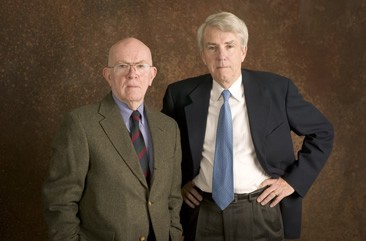Barlett & Steele Award Recipients
The winners of the Barlett & Steele Awards demonstrate time and time again the importance of investigative business journalism in exposing corporate wrongdoing and protecting the vulnerable. Winning entries are chosen not only for their journalistic merit but the impact that ripples out from the publication of the investigation. All of these investigations have led to significant change, with many seeing legislative reforms, federal investigations, or major changes in business practices that ultimately benefit the lives of everyday people.
An investigation into a business, especially private for-profit corporations, often comes with major hurdles, including tight-lipped employees, a lack of available data, legal barriers, and working with limited resources. These hurdles force journalists to get creative in their methods and the solutions they come up with show the sheer determination and willpower they possess to tell the stories we don’t know, but should.
All of these winning journalists and publications continue the long-standing legacy of Don Barlett and Jim Steele.
View the annual winners or filter through individual winners below.
Outstanding Young Journalist
2022
Gold
Best in Investigative Business
2021
Gold
Best in Investigative Business
2021
Silver
Best in Investigative Business
2021
Bronze
Best in Investigative Business
2020
Gold
Best in Investigative Business
2020
Silver
Best in Investigative Business
2020
Bronze
Best in Investigative Business
2019
Gold
Best in Investigative Business
2019
Silver
About Donald Barlett & James Steele
Donald Barlett and James Steele worked together for more than four decades, first at The Philadelphia Inquirer (1971-1997), where they won two Pulitzer Prizes and scores of other national journalism awards, then at Time magazine (1997-2006), where they earned two National Magazine Awards, becoming the first journalists in history to win both the Pulitzer and its magazine equivalent, and most recently were contributing editors at Vanity Fair (2006-2017).
The Washington Journalism Review said of Barlett and Steele: “They are almost certainly the best team in the history of investigative reporting.”




